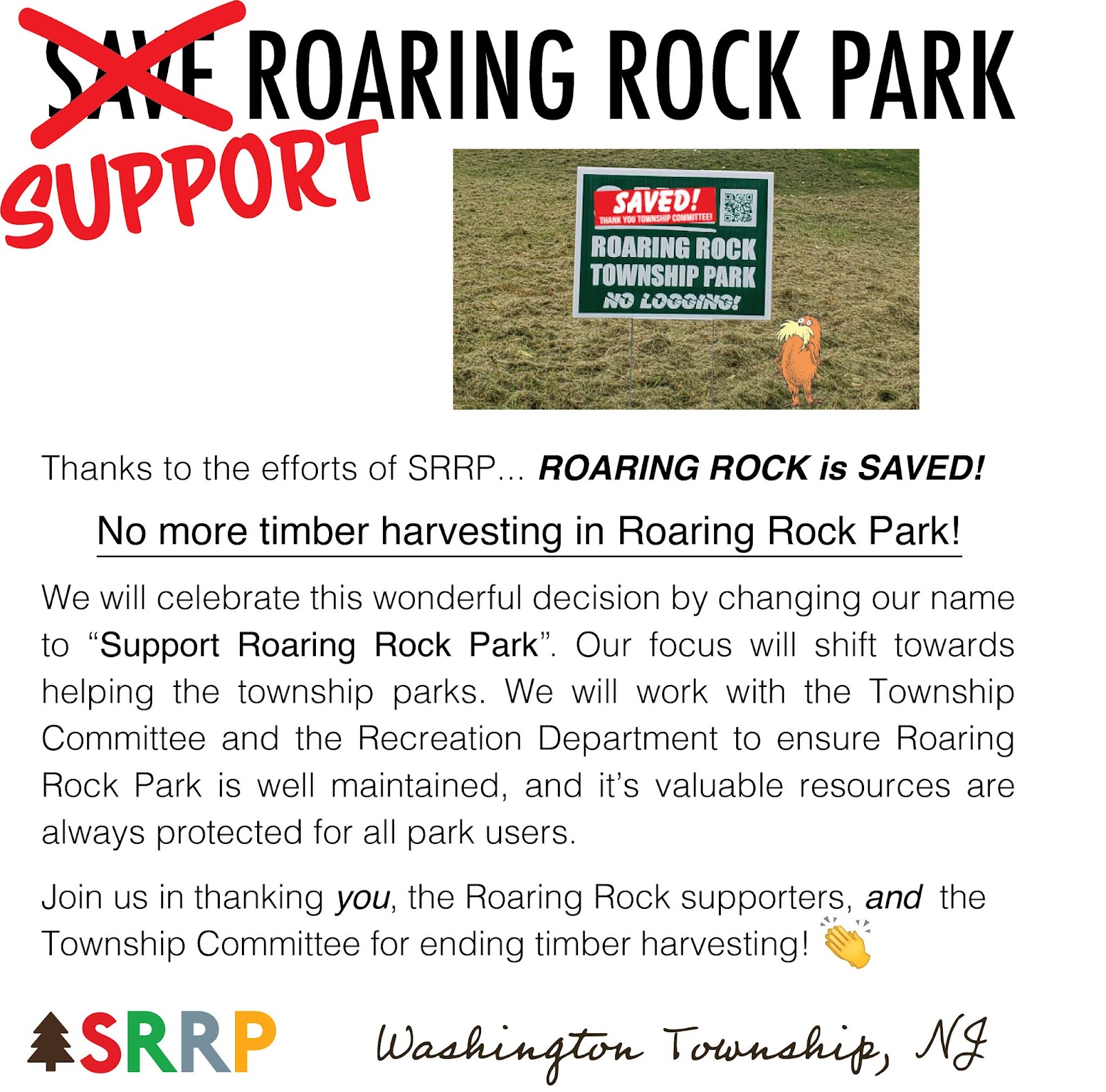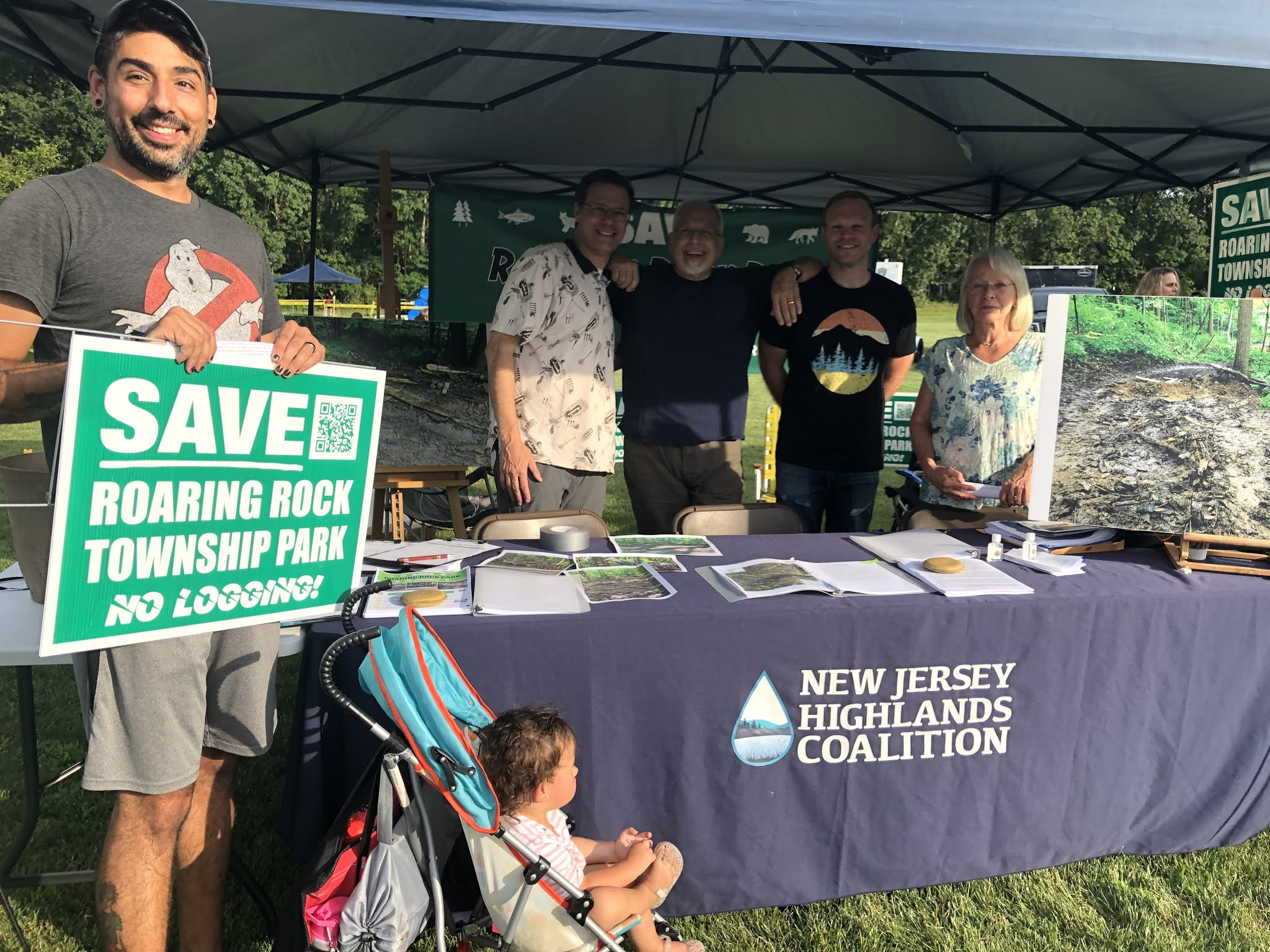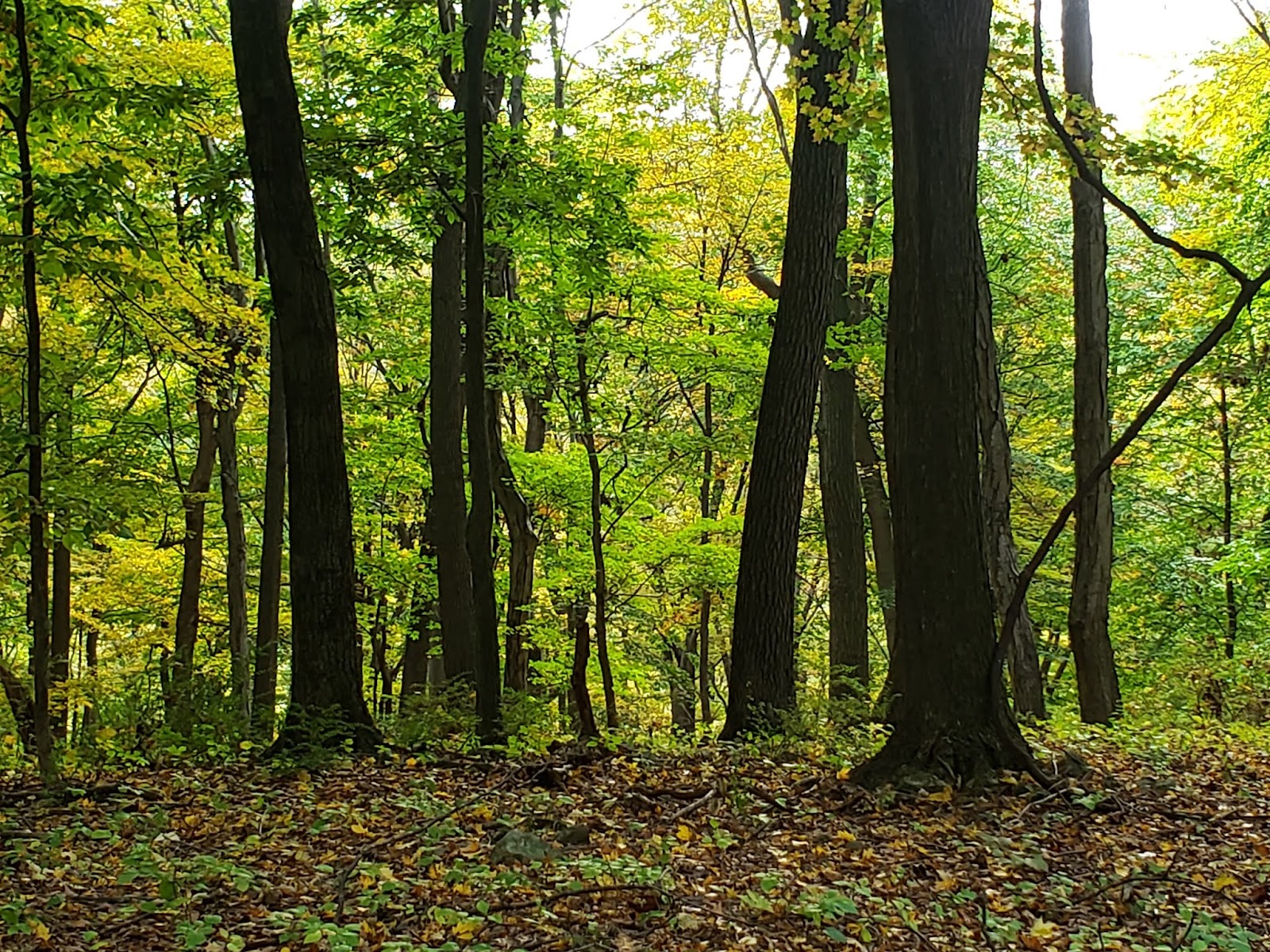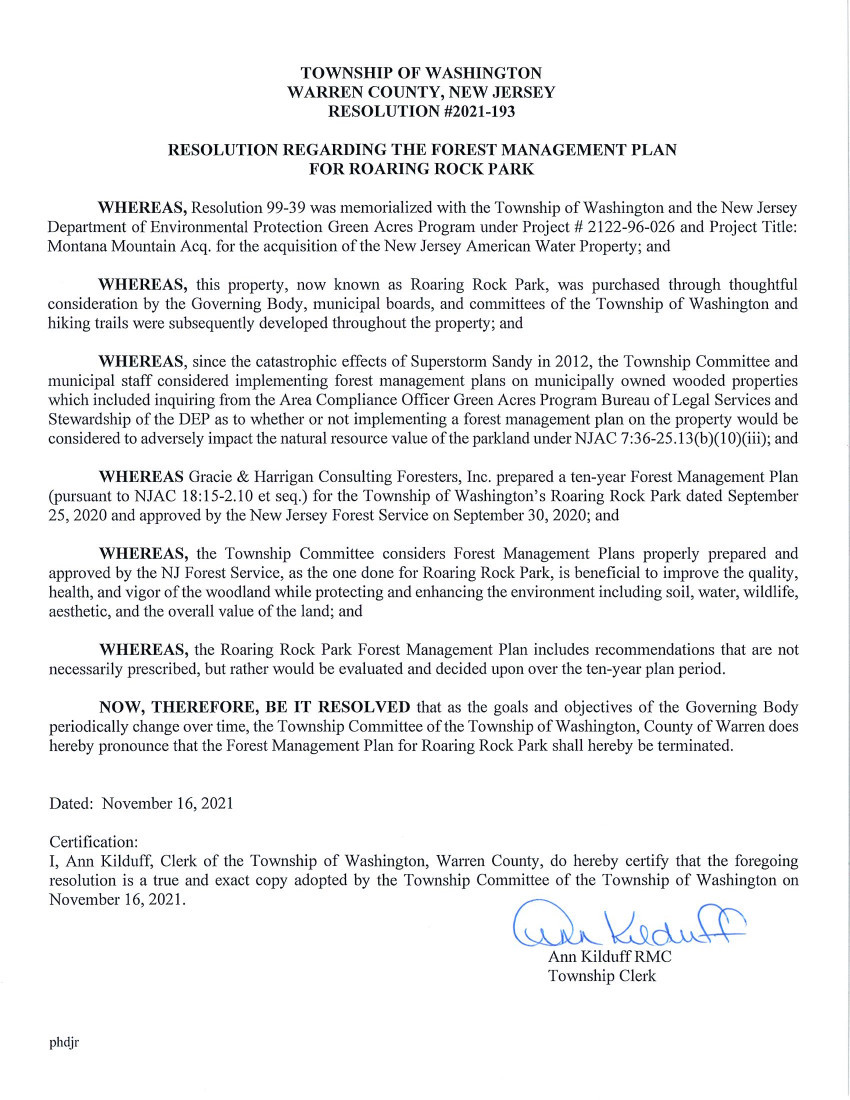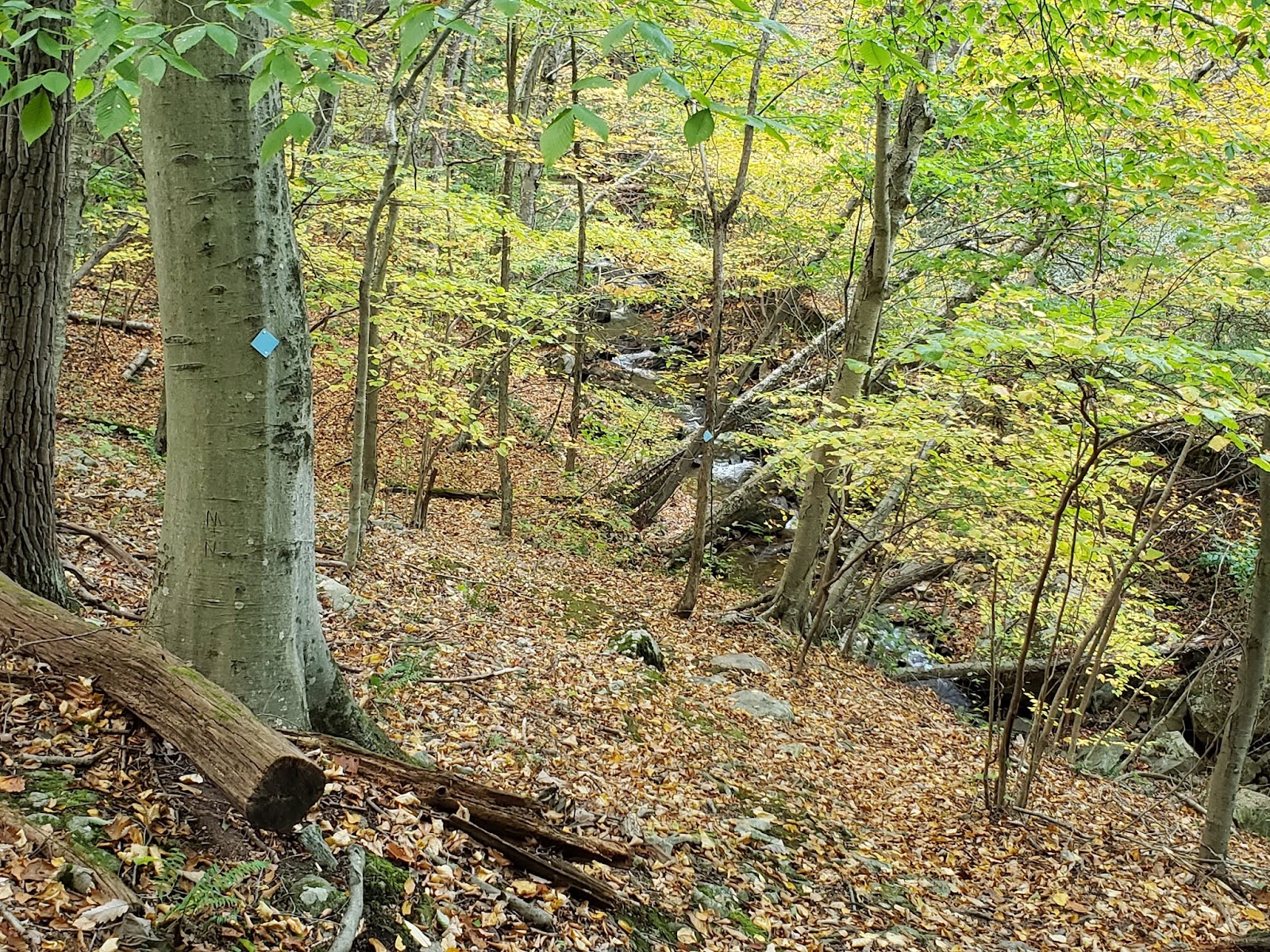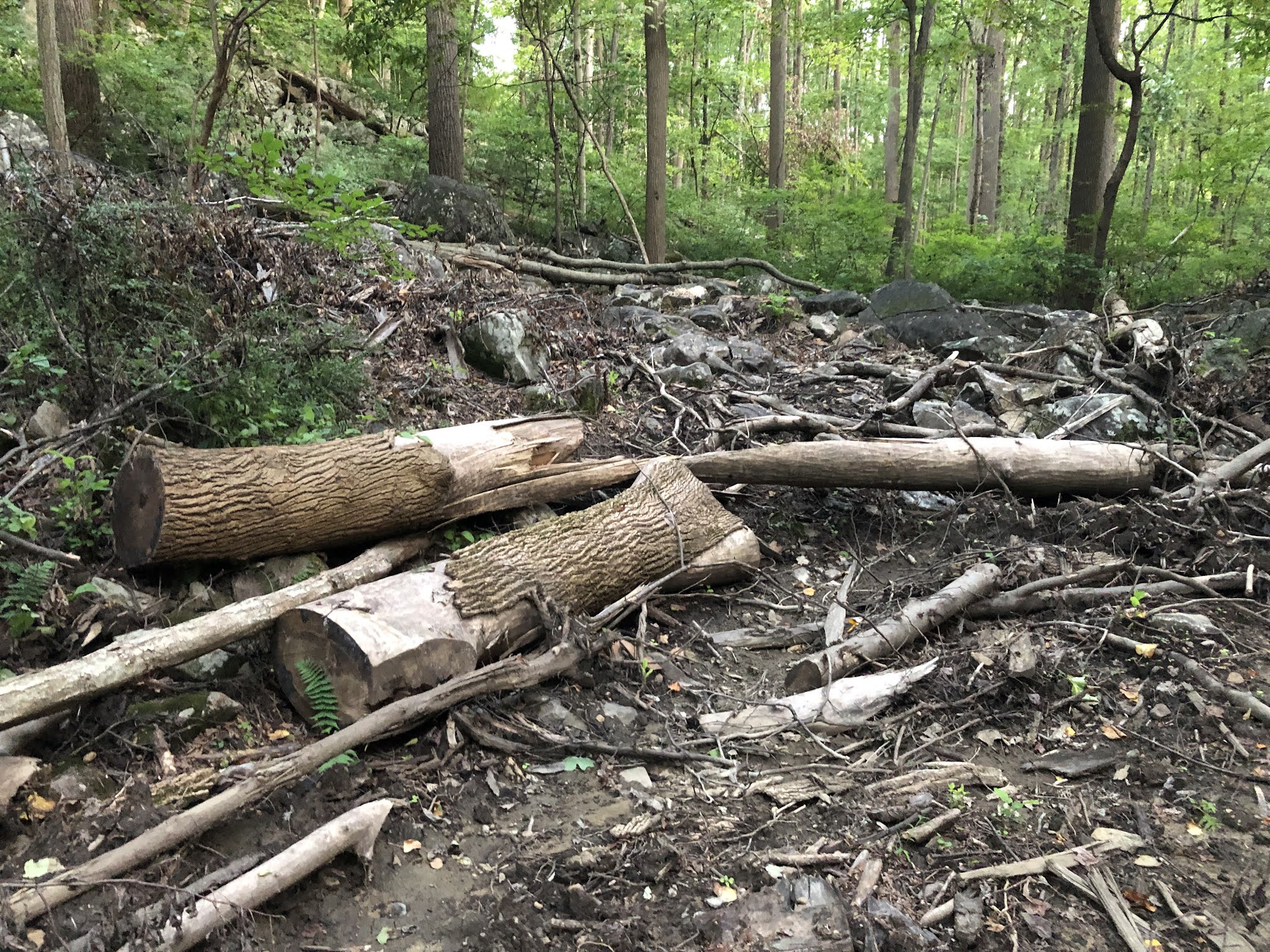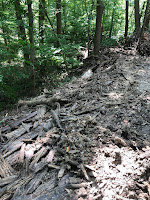
|
Discarded tree crowns which increases fire load
Roaring Rock Park, Warren County, NJ
|
This is especially true with the Forest Management Plan (FMP) now being
executed at Roaring Rock Park, by the Washington Township Warren County NJ
municipal government and its logging contractor.
How it started...
If you talk to proponents of forest management, you often hear that managed
tree harvesting is a means to reduce the risk of
- forest fire hazards, and
-
legal liability stemming from potential lawsuits raised by victims harmed by
falling dead trees.
To achieve this goal at Roaring Rock Park, one would think the logging
contractor, hired by the municipal government, would need to remove diseased
and dead trees from the forest.
How is it going?
The municipal government, through its hired logging contractor, has started to
log the park in June 2021, kicking off ten years of tree harvesting.
So will the recent logging activity lead to reduced risks?
The "reduce forest fire risks" "benefit"
This is a large debate now, as you see forest fires raging in places such as
California, Australia and even the Pinelands in southern New Jersey.
You hear that removing trees will reduce the fire load within the
forest.
Aside from this ongoing debate, did the outcome of recent logging at Roaring
Rock Park, decrease the fire load?
What occurred: the Township's logging contractor cut down mature healthy
trees. As they did this, they lopped off the tree crowns (tree tops) and
discarded them on the forest floor.
As these discarded tree crowns die and rot, they will increase the risk of
forest fire by increasing the fire load of the park.
The "dead trees falling on people" threat
If you observed the tree extraction by the loggers, you will notice that the
logs taken were not diseased or dead. They came from mature
healthy trees that were not "ready to fall on residents."
Off to a bad start, let's get back on track
Our group urges Washington Township to:
-
stop the current logging activity which not only harms the ecology
of the park, but runs counter to the benefits its touts, and
-
inform the public through regular public meetings that state, on
public record, the outcome of recent logging activities and plans for the
future phases over the ten year FMP period.
-
meet regularly with the New Jersey Highlands Coalition to design a
more ecologically responsible FMP that reduces the harm to the forest
ecology and wildlife that lives within it.
-
monitor future logging activity to minimize deviations from the
plan.
